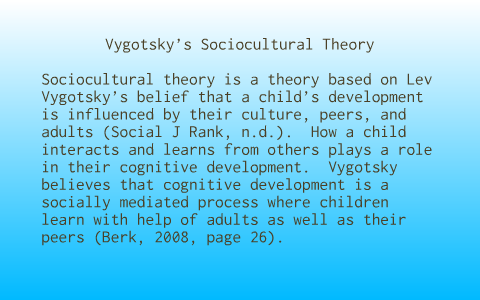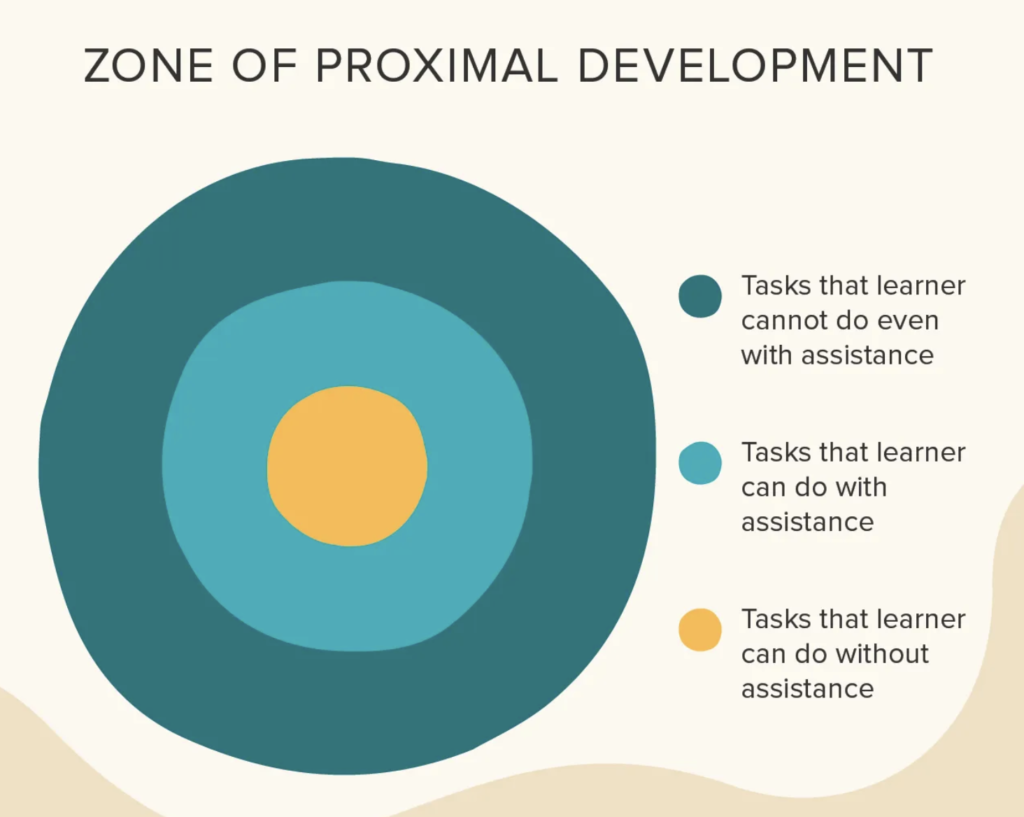The sociocultural theory of cognitive development, also known as cultural-historical psychology, is a theoretical perspective that explains how an individual's cultural and social environments influence their cognitive processes and development. This theory was developed by Soviet psychologist Lev Vygotsky in the early 20th century, and it has since been expanded upon and adapted by other researchers.
According to the sociocultural theory, cognitive development occurs through the interaction of individuals with their social and cultural environments. This interaction includes both direct and indirect experiences, such as language acquisition, socialization, and education. As individuals interact with their environment and engage in activities with others, they internalize the cultural tools and practices of their community and use them to think and solve problems. These cultural tools include language, symbols, and other forms of communication, as well as social norms and values.
One key concept in the sociocultural theory is the zone of proximal development, which refers to the gap between what a person can do independently and what they can do with the help of more skilled others. For example, a child may not be able to solve a math problem on their own, but with the guidance of a teacher or peer, they may be able to understand the problem and find a solution. The zone of proximal development is an important concept because it suggests that cognitive development occurs not just through individual effort and experience, but also through interactions with others and the support of more skilled individuals.
Another important concept in the sociocultural theory is that of scaffolding, which refers to the support and guidance provided by more skilled individuals to help someone perform a task or activity. Scaffolding can take many forms, including verbal explanations, demonstrations, and physical assistance, and it can be adjusted as the learner becomes more skilled and independent.
One of the key contributions of the sociocultural theory is its emphasis on the social and cultural context of cognitive development. This perspective highlights the importance of considering the influence of cultural and social factors on an individual's thought processes and learning, and it suggests that cognitive development is not a universal process but rather one that is shaped by the specific cultural and social environments in which it occurs.
In conclusion, the sociocultural theory of cognitive development offers a nuanced and contextualized understanding of how individuals develop cognitive skills and abilities. It emphasizes the role of cultural and social factors in shaping cognitive development and highlights the importance of interactions with others and the use of cultural tools in the learning process.







